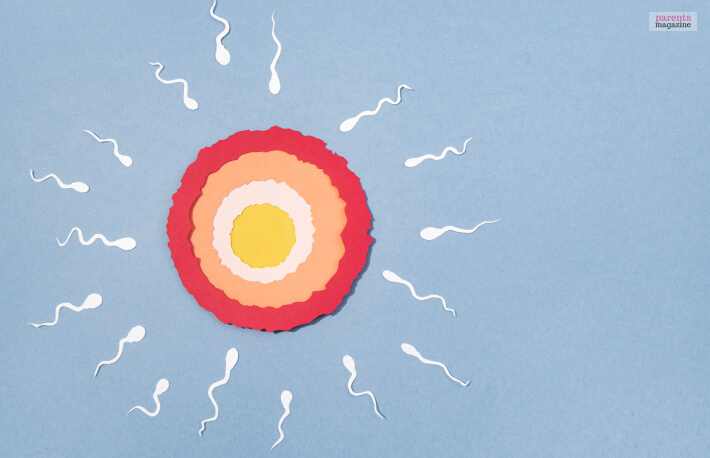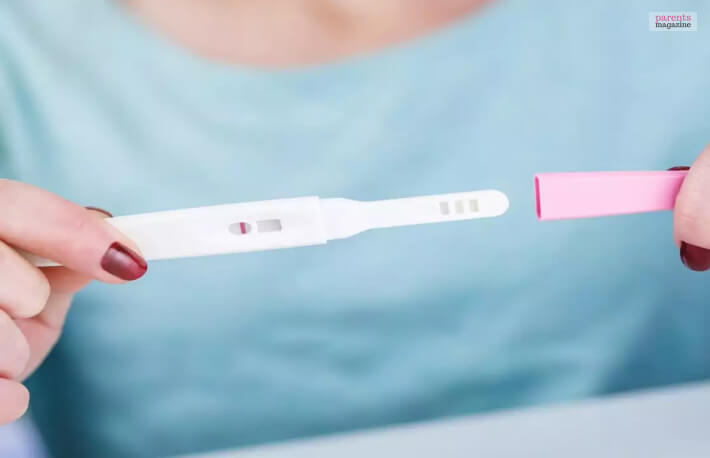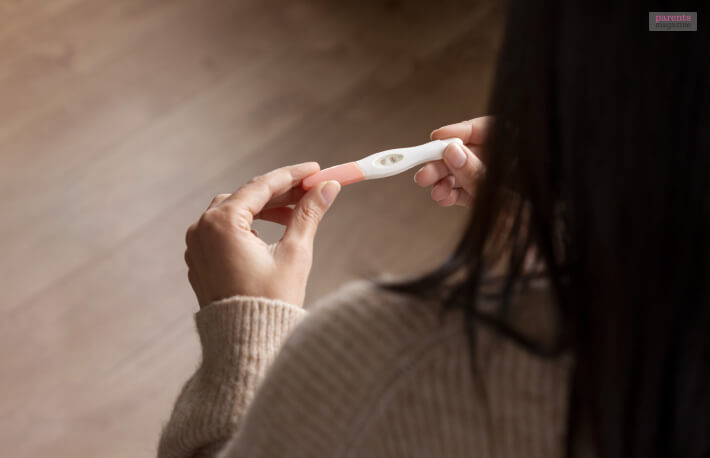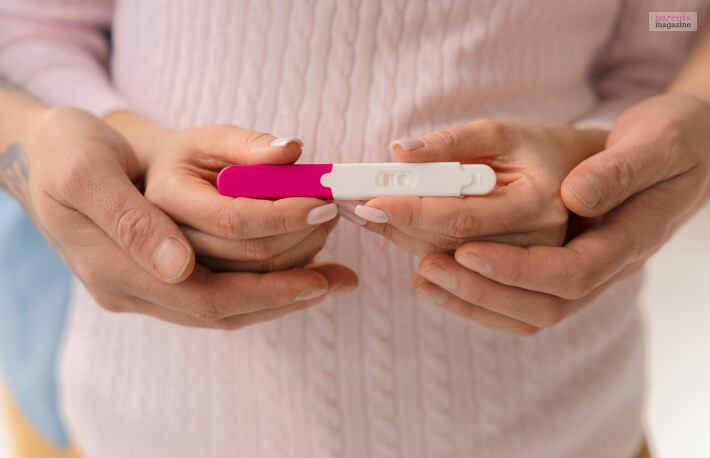
Planning For A Baby? Here’s The Signs Of High Fertility In A Woman
Have you taken the big decision? Planning a baby? Well, that must be it. That is probably why you are looking for signs of high fertility in a woman. Getting pregnant is not a very easy task; it rarely happens in one try and occurs only if you are that lucky. But not everyone is so fortunate and has to go through a hell of a lot to get to the good news.
Just as there are ways of telling when you are ovulating, there are also ways to know if you are fertile or when you are most fertile. Mostly, when you start menstruating, the signs begin to get more prominent.
A woman’s ability to get pregnant depends on her fertility level, which she can determine from the features her body possesses post and pre-menstruation. Let’s check the road map to fertility.
What Is Fertility?

Let’s start with the basics and begin with the reproductive base before getting on to the signs of high fertility. As a woman reaches puberty, the body initiates the process of menstruation, which identifies the ovulation process, which means that an egg is released every month from the ovaries. The uterus prepares itself for the next step, which is pregnancy.
Fertility is the body’s ability to get pregnant, which mainly depends on the egg quality released from the ovary. We have prepared a chart considering a regular 28-30 day menstrual cycle. The chart shows the level of fertility depending on the menstrual phase.
- During menstruation (From day 1 to day 6) – Very low fertility
- The follicular phase is when the egg has matured inside the follicles (From day 7 to day 11) – Low to medium fertility.
- The ovulation phase is when the egg is developed and built inside the uterus lining (From day 12 to day 16) – High fertility.
- The luteal phase is when ovulation is over (From day 17 to day 30) – Low fertility.
Every human body is unique, and every cycle is unique as well. It varies from woman to woman, and this chart considers the regular menstrual cycle. So now you know your fertility window, and it is best to track your ovulation so you do not miss it next time.
During this part of the cycle, the egg releases, and it is the best time to conceive, as this is when it is the easiest for a sperm to fertilize the egg. And since conceiving is directly proportional to fertilization, it is likely that you will get pregnant when you are closer to this particular part of your menstrual cycle.
What does high fertility mean? High fertility means that the quality of the released eggs is good enough to conceive a baby. With that, we come to the next step: the signs of high fertility in a woman.
Signs That A Woman Is Highly Fertile

A woman should know if they are fertile when trying to conceive. It is easy for you if you have a clear picture of yourself. Let’s study the high fertility symptoms that a woman shows.
Regular Menstrual Cycle
Having a regular menstrual cycle is considered a sign of high fertility. If a woman gets her period on time without any miss or delay, it marks that she is ovulating regularly and there is no issue with her reproductive health.
Also, if a woman has a regular menstrual cycle, it is easy for her to track the ovulation period and time properly. This way, you know the best time when you can conceive and have sex during that window. An irregular menstrual cycle can also mean some problems with the ovulation process, which is a sign of low fertility.
High Antral Follicles
A higher number of antral follicles means high fertility in a woman. Antral follicles are the ones that stay on the ovaries. If they are in abundance and active form, they symbolize the rich ovarian reverse available for fertilizing.
Transvaginal ultrasonography analyzes the antral follicles to see the ovaries precisely. So, this can be a straightforward way of knowing your fertility level; all you have to do is get an ultrasonography and an estimate of the antral follicle count.
Change In Cervical Mucus
Notice the change in your cervical mucus, and that will give you a clear indication of your fertility level. It is a healthy sign if you find your cervical fluid changing its consistency as the body changes phase over the menstrual cycle.
The watery base of the cervical fluid changes during the fertility window. During the ovulation phase, this change happens to help the sperm reach the egg. During this phase, the fluid is to be rich in nutrients and have a smooth texture resembling a raw egg white.
Women with high levels of fertility and with the texture as mentioned above and the form of cervical liquid help the sperm to stay alive longer in the uterus and increase the chance of conceiving. This is a very prominent sign of high fertility in women, and keeping that in check can help you with the required answer you are looking for.
Your Body Temperature Rises
Checking your basal body temperature during the phase of ovulation can help you with the signs of fertility. Now, why should you measure your basal body temperature? The basal body temperature has a tendency to increase when you are ovulating.
If you try to track your basal body temperature every day for three months to rack your fertility, you will find a gradual rise during the time of ovulation i the basal body temperature. And if you find the increase in temperature just after the ovulation period, well, there it is, one of the signs of high fertility in a woman.
Increase In Hormone Levels
We have been talking about many signs and signals of high fertility in a woman, but an increase of specific hormones in your blood clearly indicates that you are highly fertile.
During ovulation, the FSH, or follicle-stimulating hormone, and LH, or luteinizing hormones, rise. These are the reproductive hormones important for fertilization to happen. It is better if you take a blood test during the ovulation phase to have a clear idea about the hormone count in your bloodstream, and a higher number of hormones is a good sign of high fertility.
If you also find an increase in progesterone in the bloodstream, that means ovulation has happened. Checking the levels every week before getting your period can help a woman track her ovulation better.
Ovulation Cramps Or Mittelschmerz
Ovulation cramp is the physical sign that your body is showing that you are fertile. You can feel mild cramps and some discomfort in your abdomen and your pelvic area during ovulation every month.
When the follicle ruptures, it releases blood or other fluids in minute quantities, and that causes the pain. This pain varies from woman to woman; some might feel a light or dull pain, and for some, it can be sharp. The pain intensity depends on the physical health, and the duration varies for every other woman.
You will observe these small but significant signs during the ovulation period. Your lower abdomen might feel heavy. But it is essential that you remember that these signs not only indicate fertility but can be symptoms for some underlying illnesses. So, if you find something unusual or feel discomfort, it is better to consult a doctor.
What Are The Tests For Fertility In Women?

You can pay attention to the signs of fertility in a woman, but there are other ways as well to get the information. You can get yourself checked and get some medical examinations done to know about your fertility status.
Hysterosalpingography (HSG)
This test finds out if there are any blockages in the fallopian tube and assesses uterine health. In this test, after injecting a contrast into the uterus, an x-ray is taken. If the injected fluid travels without any interruption, then it can be determined that there are no blockages, and that means a woman is fertile.
Ultrasound
Ultrasonography of the pelvic region is capable of determining if there are any diseases related to the ovaries or the uterus. There are also a few advanced forms of ultrasounds, like Trans Vaginal Sonography or TVS and saline infusion, which are required to look into the fine details that are not visible in regular sonography.
Hormonal Tests
There are a lot of tests that can determine the level of fertility in a woman. Tests like LH, Progesterone, and FSH are done on specific days during the menstrual cycle that are suggested by the doctors. Blood tests, as well as urine tests, can also determine the fertility rate of a woman.
Laparoscopy
Doctors prescribe Laparoscopy only when the other test results fail to give an accurate result. This minimal procedure tries to discover complications like endometriosis and other possible problems with the uterus, fallopian tube, and ovaries. When a doctor is not just looking for the fertility rate but trying to find the problem and treat it, then this test is recommended.
Hysteroscopy
The procedure of hysteroscopy is to insert a thin tubule along with a camera through the vagina. Doctors prescribe this test to find out if there are any abnormalities present in the fallopian tubes, uterus, and ovaries. This test also promotes different ways of diagnosis as it allows the doctor to extract small pieces or tissues of the organ for testing.
Ways To Promote Fertility In Women
Fertility issues are more common than you think. A lot of women complain about their fertility issues. But not everything needs medical help. Promoting fertility can be done through natural processes, too.
You can get medical help when you see long-term problems with anything related to your fertility.
Eat Foods That Are High In Antioxidants
Antioxidants can help deactivate the free radicals in your body. This has the chance to damage both egg and sperm cells.
However, there is slight evidence that suggests that antioxidants may improve fertility in both males and females.
If you wish to increase the amount of antioxidants you take, think about adding more vegetables, fruits, nuts, and whole grains to your diet.
Give More Importance To Omega-3 Fatty Acids
Eating a lot of healthy fats each day is very important to boost fertility and your overall health.
Omega-3 fatty acids might be particularly beneficial to increase your fertility. These healthy fats can be found in many foods, that include:
- Flax seeds or flaxseed oils
- Fatty fish
- Chia seeds
- Walnuts
Quit The Carbs If You Have PCOS
Maintaining a diet with low carbs, where you get less than 45 percent of calories from carbohydrates, is usually best if you have PCOS. For instance, if you are eating approximately 1,800 calories per day, that transforms into 200 grams of carbs.
Multiple studies suggest that managing your carb intake offers beneficial effects on certain aspects of PCOS. Just make sure that you are not overdoing it. Completely cutting down on carbs may cause other health issues.
Reduce Refined Carbohydrates
When we talk about carbs, it is not just the amount that will have an impact. The type matters, too.
You might want to pay more attention to refined carbs. These are available in abundance in sugary foods and drinks, along with processed grains like bread, white pasta, and rice.
Think About Prenatal Vitamins
If you are planning to conceive anytime soon, you might just want to start taking these prenatal vitamins. These tend to have very high levels of vitamins that support both pregnancy and fertility, like B vitamins and folic acid.
Just make sure that you do enough research before you choose to take one. The best way out is to talk to your doctor to get the best possible recommendations.
Get Active
Physical activity is one of the best things if you wish to increase your fertility. Heavy physical activity also reduces obesity – one of the biggest reasons behind infertility.
Also, as it is with most things, moderation is the key here. Too much exercise might have a negative impact on some people. So, the best thing to do here is to moderate.
Take Time To Relax
You certainly have no idea what stress or overwork can do to your body. When you get time, make sure to do things that will reduce the added stress in your life.
Try Limiting Caffeine
The link between caffeine and fertility is not as clear. While some experts recommend limiting your caffeine intake if you are planning on getting pregnant, a review back in 2020 suggested that it isn’t as necessary. However, just like exercising, the key here is to moderate. Even if you are taking in caffeine, make sure you don’t take abnormally large amounts, as that might have adverse effects on your body.
Ways Of Promoting Fertility

There are multiple ways in which women can promote fertility; below, I have listed a few of those.
- Maintaining proper weight is an essential part of good reproductive health. It has been found that underweight and overweight people are associated with low fertility levels.
- Curbing unhealthy habits like smoking tobacco can result in early aging of ovaries and depleting egg reverses. Excessive alcohol consumption can also put your ovaries at risk and finally lead to a reduction in fertility levels.
- Stress leads to many hormonal imbalances in the body and can also negatively affect reproductive health. Thus, it is better to get adequate sleep and try to stay stress-free as much as possible.
- Be careful of the medicines that you take; some medicines are known to affect fertility negatively. After consulting a doctor, seizure medicines, birth control pills, and thyroid medicines should be consumed.
- Women should take a lot of proteins, multivitamins, and antioxidants to improve fertility; also, it is essential to maintain a proper routine.
Common Reasons Behind Infertility

- During the different menstrual phases, our body goes through varying levels of fertility, but that is temporary. There are phases when you will have very low fertility and times when you will be highly fertile.
- Consumption of liquor, tobacco, and marijuana can negatively affect women’s conception rate.
- Excessively high or low body weight is a factor affecting the fertility rate in women.
- With age, the quality and the number of eggs the ovaries produce reduces and then leads to menopause eventually.
- Any kind of hormonal condition like PCOS lowers fertility and increases androgen levels.
Wrapping Up!
It can be overwhelming, ingesting so much at a time, but trust me, you can do this. The journey might get rough but do not lose hope or get impatient. It is okay to face difficulties getting pregnant; a lot of women do, but this is something that you cannot let overpower you.
You can do your best, which means looking for the signs yourself when planning a baby and keeping track of them. It takes weeks, if not months, to get pregnant. Timing it correctly takes work. But with a little bit of tracking, a change in your lifestyle, and adopting a few good habits can help you get there.
This is when a would-be mother needs to be taken care of, and it is the job of both parents to look into that. This is just the beginning of the journey, and there is a long way ahead. So don’t worry, stay calm and stress-free, and hope for the best.
Additional Reading:
Already have an account?
Sign In
Create your account
User added successfully. Log in








